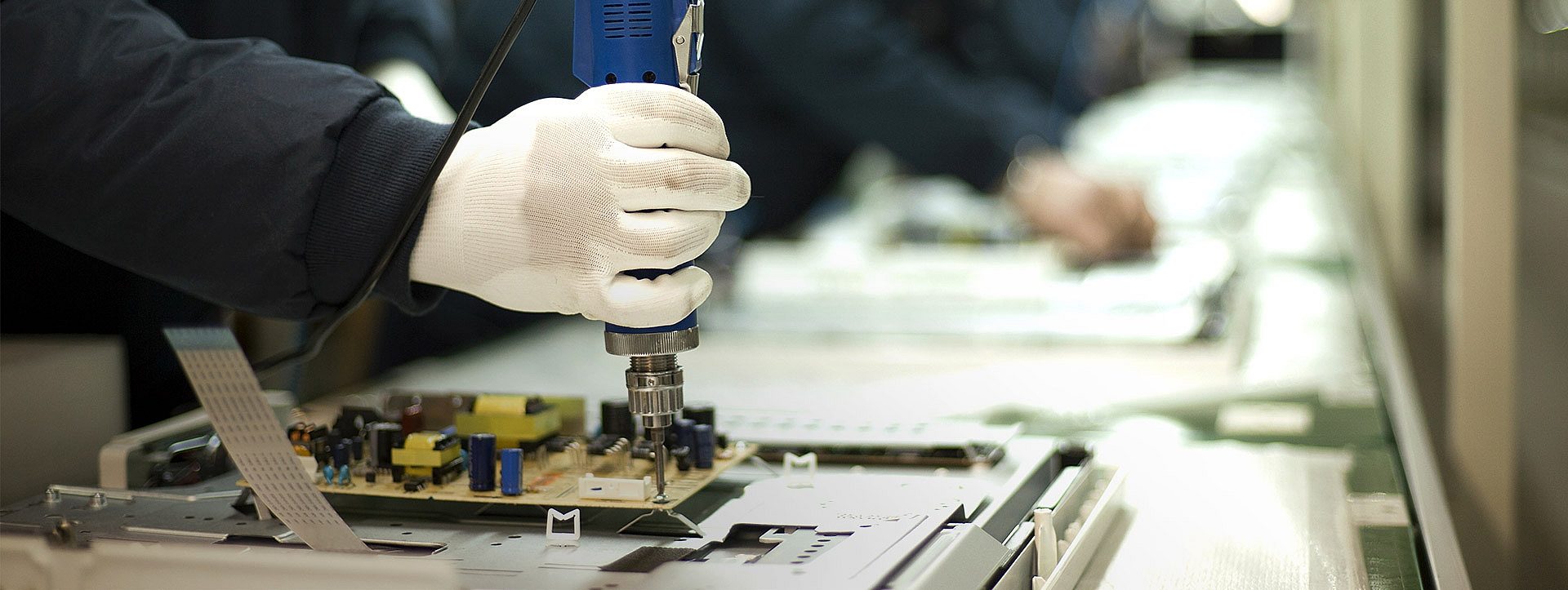
Our suppliers
Moving forward together
As a large company, annually we purchase many products and services from suppliers. Because sustainability is deeply rooted in our organization, we have high expectations of the parties we work with. KPN critically observes the impact of services from our parties on the environment and the working conditions of their staff.
We work closely with suppliers to make equipment and products less impactful for the environment. We do this by continuously engaging with strategic suppliers and setting specific conditions for products and services to improve their sustainable performance. Our partners share the commitment to working more and more sustainably. Only together with all these parties in the supply chain can we reduce our energy consumption and improve working conditions.
Read more about ESG in our annual report
Working together for a greener future
While data usage is rising, our absolute electricity consumption is still declining thanks to rationalization and improved techniques. We have the ambition to reduce our electricity consumption, increase our energy efficiency, use 100% renewable energy and use the right energy at the right time through battery concepts.
We design products in a circular way by using materials that can easily be given a second life. We take back hardware, we extend its lifespan, we reuse and we recycle. We are aware of the impact of (critical) raw materials in our supply chain.
In addition, we use circular principles for our ambition to have zero emissions in our value chain (Net Zero). Together with suppliers, we develop solutions to apply sustainable materials in our products and services.
For more information, read our ESG Manifesto
Key facts
High demands
When KPN purchases products or services, we set high standards for our suppliers. We see them as partners in achieving common success. That is why we want to work with suppliers who can explore strategic goals together and implement improvements in the chain. Our suppliers are innovative, think along with us and are proactive in the field of Corporate Social Responsibility. We make clear and concrete agreements with the parties with whom we work on a structural basis. We not only lay down the specifications about products and services, but also the sustainable way in which they should be delivered. These agreements are laid down in our General Terms and Conditions of Purchase.
Anyone who supplies KPN must comply with the code of conduct for suppliers. In it, we have laid down social and environmental requirements for suppliers. This code is based on the Charter of the United Nations and the core conventions of the International Labor Organization (ILO).
The code contains conditions on human rights, working conditions, privacy, safety, the environment, bribery and fraud. The supplier code of conduct is part of our general purchasing conditions and purchase contracts.
Cooperation between large telecom companies
To do business responsibly not only in our own country, but also on a global scale, KPN is since 2011 a member of the Joint Alliance for CSR (JAC). JAC is a partnership of approximately 30 telecom companies worldwide that is committed to improve Corporate Social Responsibility (CSR) in the supply chain of information and communication technology (ICT).
Together with other JAC members, KPN carries out audits at the production sites of important suppliers. These audits check whether suppliers and subcontractors comply with the sustainability guidelines of JAC.
Read more on the JAC website
Human rights
As a company at the heart of society, it is our responsibility to respect and protect human rights.
We do this for our employees and customers, in our supply chain and for society at large. Our Human Rights Code reflects KPN's position and principles about human rights.
This includes the integration of responsible business conduct into our policies, management systems, risk assessments, mitigation and
prevention mechanisms, monitoring and reporting.
KPN is a member of the JAC Human Rights Workstream, which focuses on addressing human-rights challenges in telecom industry supply chains. The goal of the JAC Human Rights Workstream is to act as one voice to improve the working and living conditions for workers in our value chain.
Grievance mechanism
At KPN, we strive to prevent and mitigate human rights violations in our own operations and value chain.
We have therefore set up a special complaint mechanism, called the "SpeakUp Line", where complaints can be shared.
This channel is accessible to everyone, both our own employees and employees in the value chain. Moreover, it is accessible online and available in multiple languages.
Read more about the SpeakUp line.
Practical examples

Case study #1
Handing in unused mobile phones
Both customers and non-customers can hand in their 'old' mobile phones at a KPN store. Usable devices get a second life through refurbishment or parts are reused, also in collaboration with KPN partners. This way we recycle phones responsibly.

Case study #2
36,000 fewer invoices
Every month KPN receives piles of paper invoices. From Stedin alone, one of our network administrators, we received 36,000 filled envelopes annually. A waste of time and resources. That is why Stedin and KPN joined forces and from now on all mail arrives electronically via the Simplerinvoicing network.
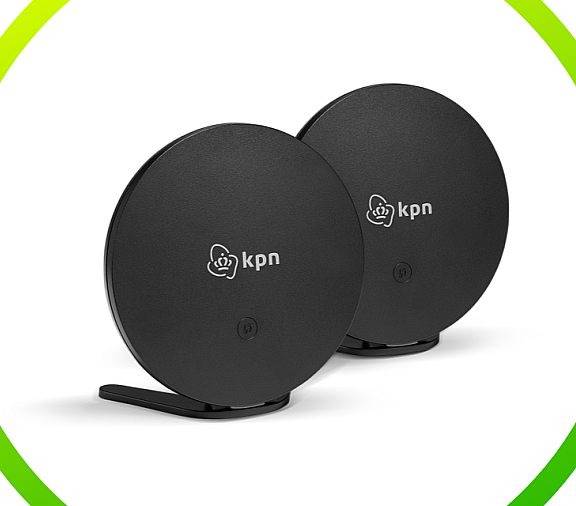
Case study #3
Less plastic
A good example of how you can make a product more sustainable are the SuperWifi points: these are made of recycled plastic and therefore more environmentally friendly to produce. In addition, they are also lighter in weight than the previous version. KPN reduces the mountain of plastic with this, and even goes further by making packaging materials plastic-free.
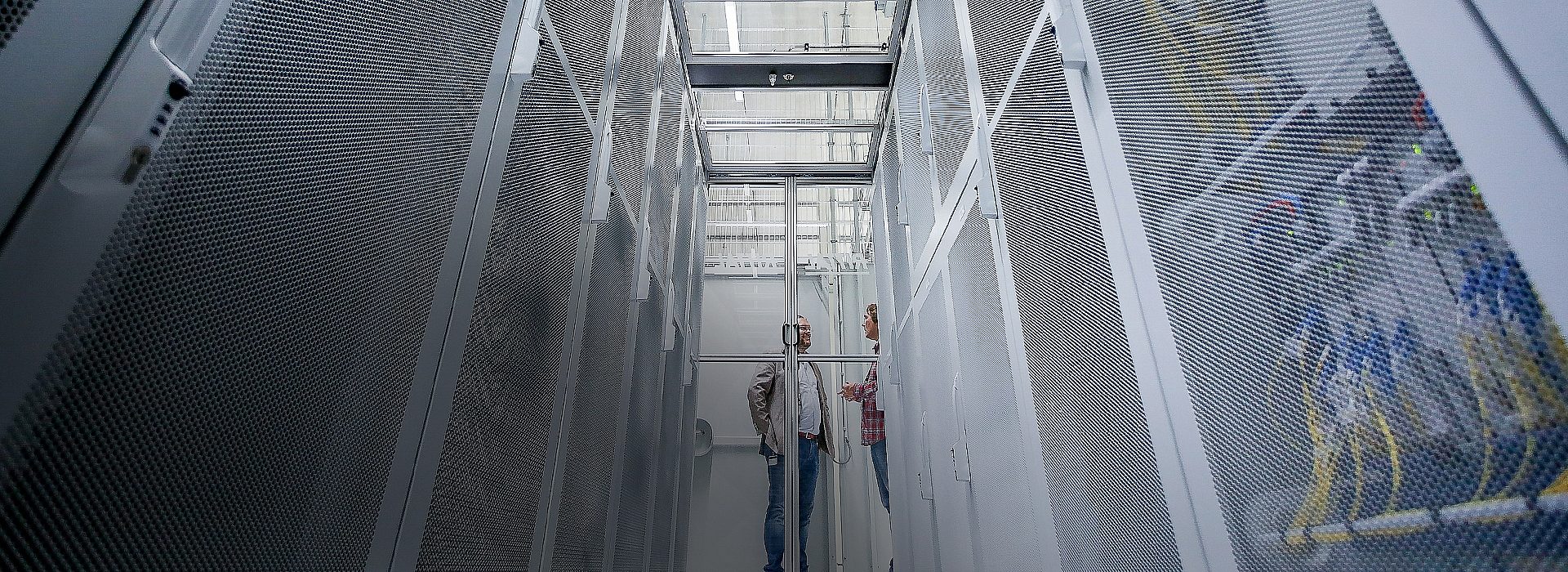
Case study #4
Efficient servers
One of our suppliers came up with an innovative IT server that processes more data but, at the same time, is more economical. KPN successfully tested this server and, subsequently, we put 24 of these new servers into use. This saves 0.22 GWh per year – the equivalent of the energy consumption of 66 households.
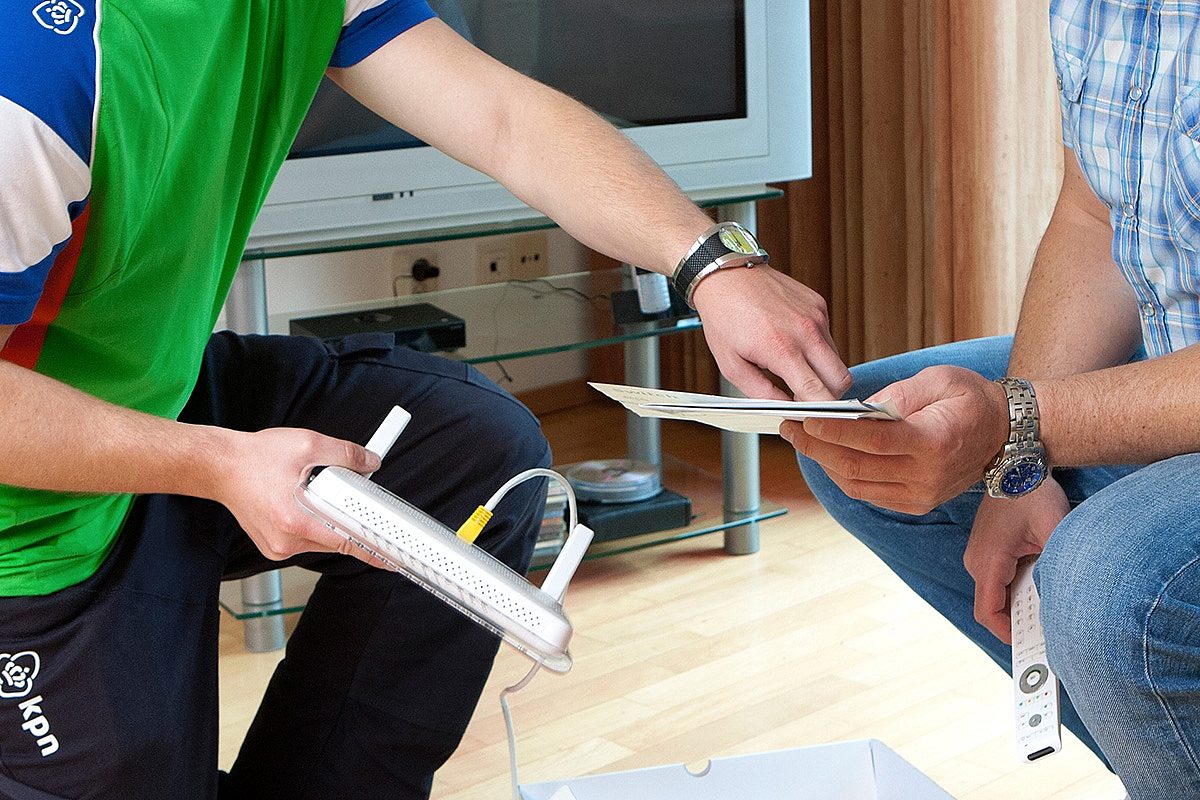
Case study #5
Saving on paper
Our customers indicated that they rarely use the paper manuals for our modems and TV receivers. They would rather look this information up online. That’s why, together with the suppliers of these devices, we’ve decided to replace the extensive manuals with concise instructions, containing only the most important information. This saves roughly 286 tonnes of paper and €660,000 in costs every year.
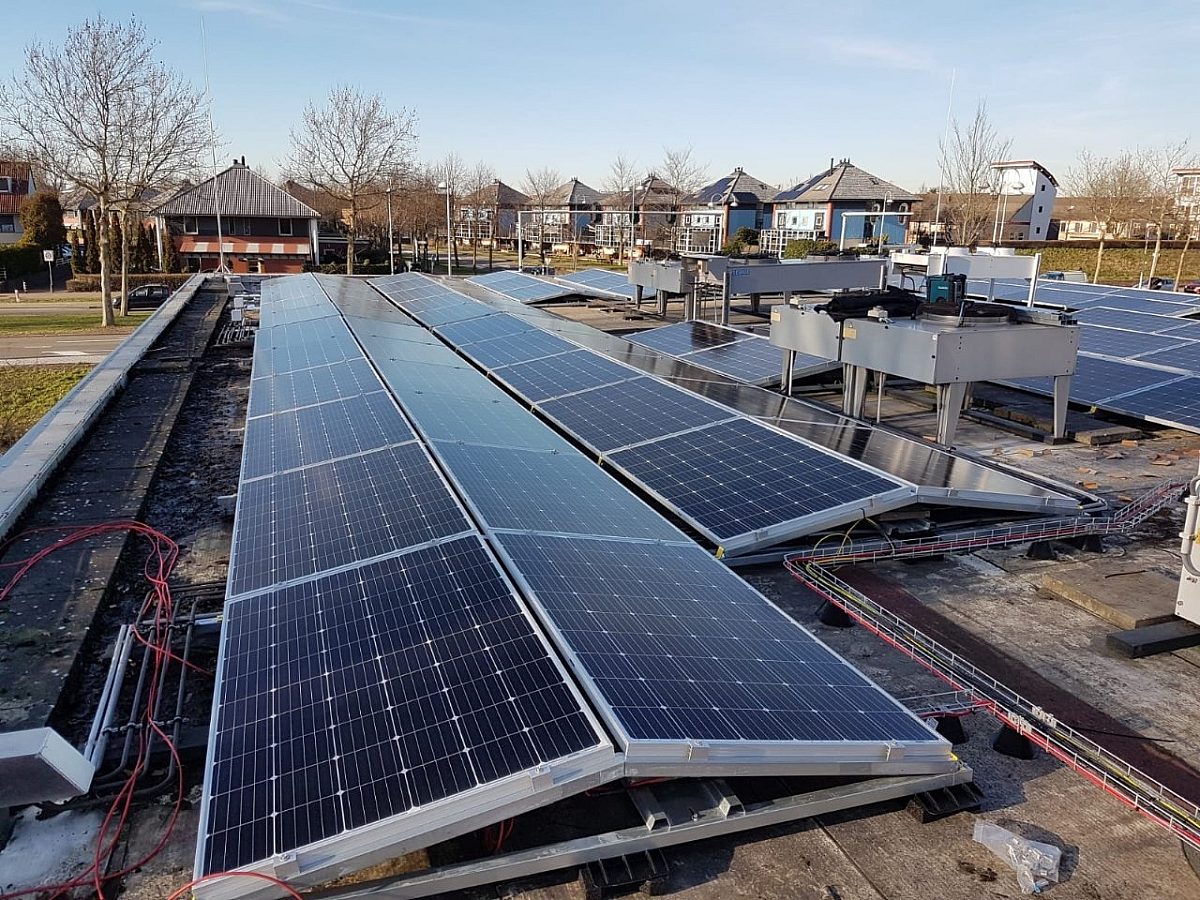
Case study #6
KPN Energy Innovation Lab
In the world of energy, supply and demand are becoming increasingly less consistent. Even when there is no wind and the sun is not shining, we still need electricity. KPN is preparing for this by researching new technologies in the Energy Innovation Lab, such as energy storage, energy generation and energy savings. This not only enriches KPN, but also helps the Netherlands in the current energy transition.